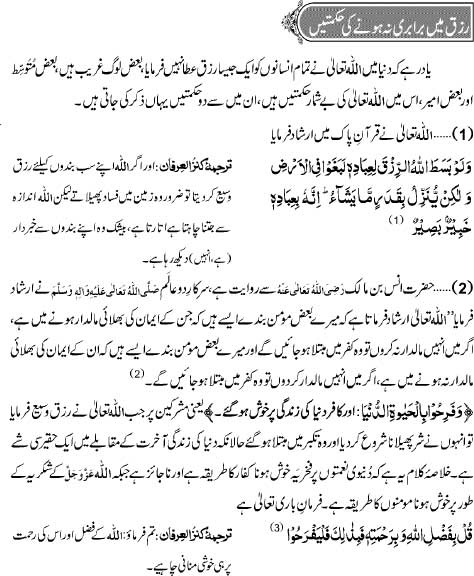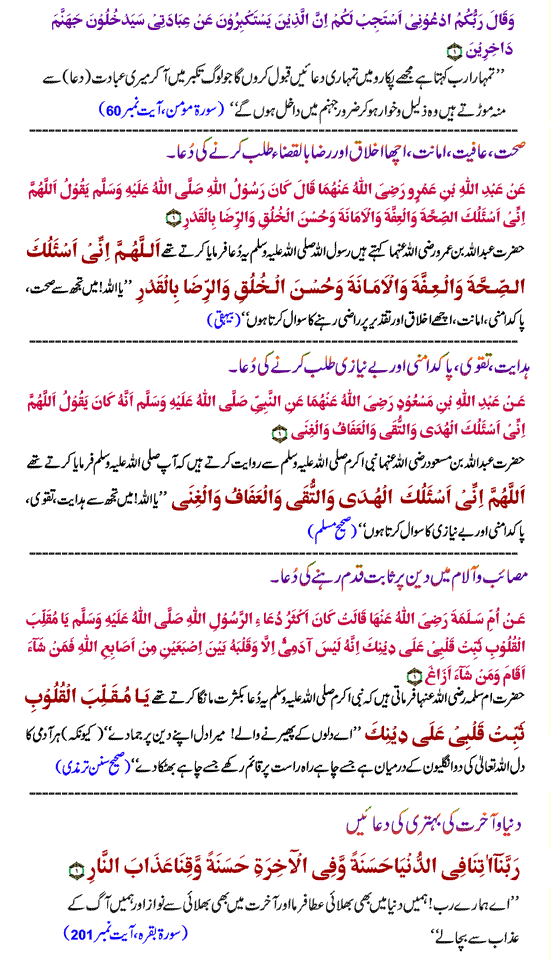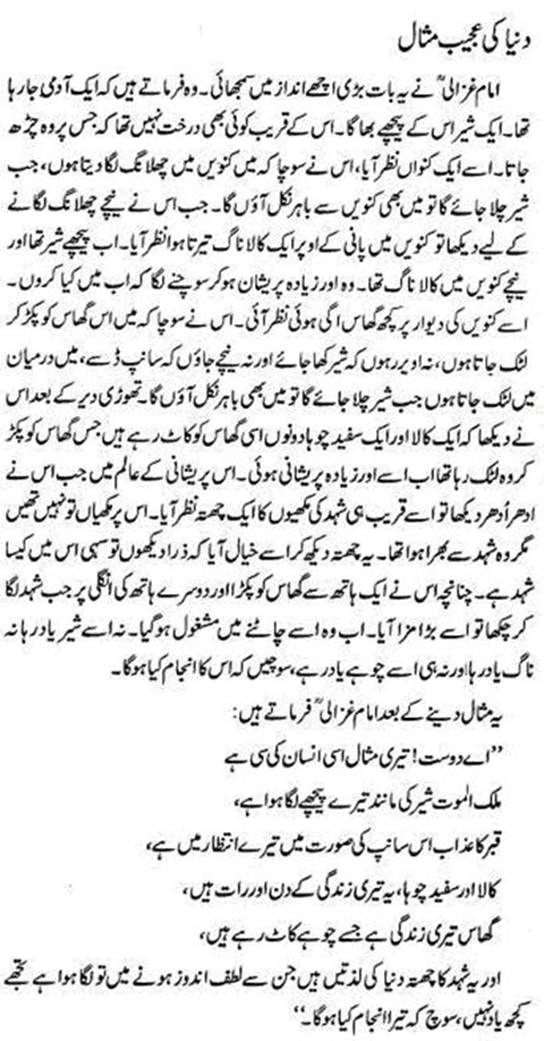
TAG: Duniya
Duniya Wa Akhirat Ki Bhalai Ki Dua’in

Akhrat Ki Zindagi

Akhrat Ki Zindagi
Duniya Ki Ajeeb Missaal

The Excellence Of Dua
Dua is the most powerful weapon of a believer. It can change fate, while no action of ours ever does. It is the brain of ‘Ibadah or worship. With it we can never fail; without it, we can never succeed. With all the suffering and disasters Muslims are facing in various parts of the world, the question of Dua can be directed to all of us today. It is not that we have forgotten Dua completely; we refer to it regularly. But, our ideas and practice regarding Dua have become distorted. Often it is reduced to the level of a ritual. It is belittled through actions and sometimes even with words. Almighty Allah says:
And your Lord said: Invoke Me, I will respond to your (invocation). Verily, those who scorn My worship they will surely enter Hell in humiliation.[Surah al-Ghafir, Verse 60]
The Almighty Allah states:
When the suffering reached them from Us, why then did they not learn humility? On the contrary, their hearts became hardened (with arrogance), and Satan made their (sinful) acts seem alluring to them. [Surah al-An’am, Verse 43]
THE EXCELLENCE OF DUA
There are numerous Ahadith relating to the excellence of Dua.
HADITH NO. 1
Sayyiduna Rasoolullah SallAllaho Alaihi wa Sallam states that Almighty Allah says:
I am with the supposition of My servant. [Recorded in Bukhari (Hadith 7239), Muslim, Tirmidhi, Nisaa’i, and Ibn Maja on the authority of Sayyiduna Abu Hurayrah]
This means that as a servant imagines or has an opinion concerning Allah, the Merciful Lord accordingly reacts with him. Knowledge and Qudrat is with everything but there is special proximity of mercy with those who make Dua to Him. What bigger mercy can a servant ask for than being blessed with the Divine Proximity of the Sublime Lord? Thousands of acceptances and millions of desires and intentions may be sacrificed in such Divine Proximity!
HADITH NO. 2
There is nothing nobler to Allah than Dua. [Recorded in Tirmidhi, Ibn Maja, Ibn Habban, and Hakim narrated by Sayyiduna Abu Hurayrah. Also cited in Tahzib al-Kamil, Vol. 4, Page 309]

